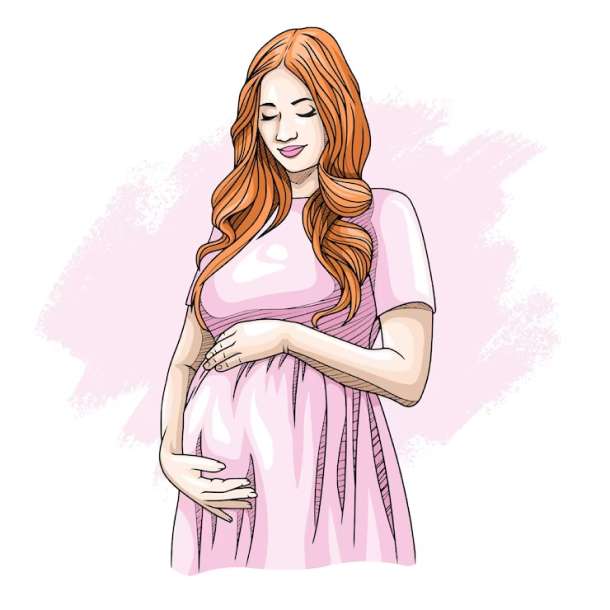Pregnancy Week by Week-3 Trimester Tips and Tricks

Pregnancy is an incredible journey that unfolds week by week as your body nourishes and nurtures new life. Understanding what’s happening each week can help you feel more connected to your baby and better prepared for the changes ahead. In this guide, we’ll walk you through your pregnancy week by week, giving you insights into your baby’s development and tips for a healthy pregnancy.
Pregnancy Week by Week Journey
Weeks 1-4:
Conception and Early Signs of Pregnancy
During the first four weeks of pregnancy, your body undergoes major changes, even though you may not know you’re pregnant yet. After conception, the fertilized egg enters the uterus and begins to implant into the uterine lining. You may notice early pregnancy symptoms, such as mild cramping, light spotting, and fatigue.
Tips for this phase:
Stay healthy:
Start taking prenatal vitamins and eat a balanced diet.
Watch for symptoms:
Watch for any unusual symptoms and consult your doctor if necessary.
Weeks 5-8:
First signs of development
During weeks 5-8, your baby is developing rapidly. The embryo forms important organs, including the heart, brain, and spinal cord. This is also the time when many women experience typical pregnancy symptoms, such as nausea, fatigue, and breast tenderness.
Tips for this phase:
Treating symptoms:
Eat small, frequent meals to ease nausea and stay hydrated.
Schedule your first prenatal appointment:
It is important to start prenatal care as early as possible.
Weeks 9-12:
First Trimester Milestones
At the end of the first trimester, your baby is now called a fetus. From this point on, the risk of miscarriage decreases significantly, and your baby’s vital organs are fully formed but still developing. You may also notice a small baby bump.
Tips for this phase:
Focus on nutrition:
Continue to eat a balanced diet rich in essential nutrients.
Think about the announcement:
Many parents choose to announce their pregnancy at the end of the first trimester.
Weeks 13-16:
The beginning of the second trimester
Welcome to the second trimester! For many women, this is the most comfortable stage of pregnancy. Your baby’s development is progressing rapidly, organs are maturing, and bones are beginning to harden. You may notice an increase in your energy levels and a decrease in morning sickness.
Tips for this phase:
Enjoy the energy boost:
Use this time to prepare for the months ahead.
Start with childbirth classes:
Consider taking childbirth classes to prepare for birth.
Weeks 17-20:
Feeling the first movements
Weeks 17 to 20 mark an exciting milestone – you’ll feel your baby’s first movements, called quickenings. Your baby is also growing rapidly and developing a unique sleep-wake rhythm. During this stage, your baby’s gender can be determined with an ultrasound scan.
Tips for this stage:
Connect with your baby:
Talk to your baby and play soothing music.
Schedule an anatomy scan:
Schedule your ultrasound for the second trimester, usually around week 20.
Weeks 21-24:
Significant growth and development
During this week from 21 to 24, your baby’s senses develop and he or she may begin to respond to sounds and light. Your baby will also gain weight significantly during this period as he or she begins to build up fat reserves.
Tips for this stage:
Stay active:
Do light exercise, such as walking or prenatal yoga.
Monitor your baby’s movements: Keep an eye on your baby’s movements to make sure he or she is active and healthy.
Weeks 25-28:
Prepare for the Third Trimester
As you approach the third trimester, your baby’s organs are fully developed and continue to grow and mature. You may experience Braxton Hicks contractions as your body prepares for labor.
Tips for this phase:
Plan ahead:
Start preparing for your baby’s arrival by setting up the nursery and packing your hospital bag.
Attend checkups:
Regular checkups are important to monitor your baby’s health.
Weeks 29-32:
The Final Stage is Coming
During weeks 29 to 32, your baby is growing rapidly and you may notice more frequent and strong growth movements. This is also a good time to finalize your birth plan and discuss birth options with your doctor.
Tips for this phase:
Stay calm:
Practice relaxation techniques to manage stress and anxiety.
Educate yourself:
Learn the signs of labor and what to expect during labor.
Weeks 33-36:
Prepare for labor
During weeks 33 to 36, your baby is in the labor position and you may feel more pressure in your abdomen. Now is the time to complete all the preparations for your baby’s birth.
Tips for this phase:
Rest and relax:
Make sure you get enough rest as your due date approaches.
Prepare for labor:
Review your birth plan and discuss it with your doctor.
Weeks 37-40:
Countdown
You’ve reached the final weeks of your pregnancy! Your baby is now full-term and could be born at any time. It’s important to pay attention to the signs of labor and stay in close contact with your healthcare provider.
Tips for this phase:
Be prepared:
Pack your hospital bag and make sure you have a plan for when labor begins.
Stay calm:
Practice breathing exercises and relaxation techniques to ease labor pain.
Conclusion
Pregnancy is an incredible journey that changes week by week. Understanding each phase will help you make smart decisions, stay healthy, and prepare for your baby’s arrival. Whether your pregnancy has just begun or your due date is approaching, this guide will support you every step of the way.
